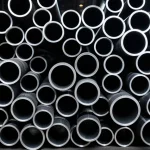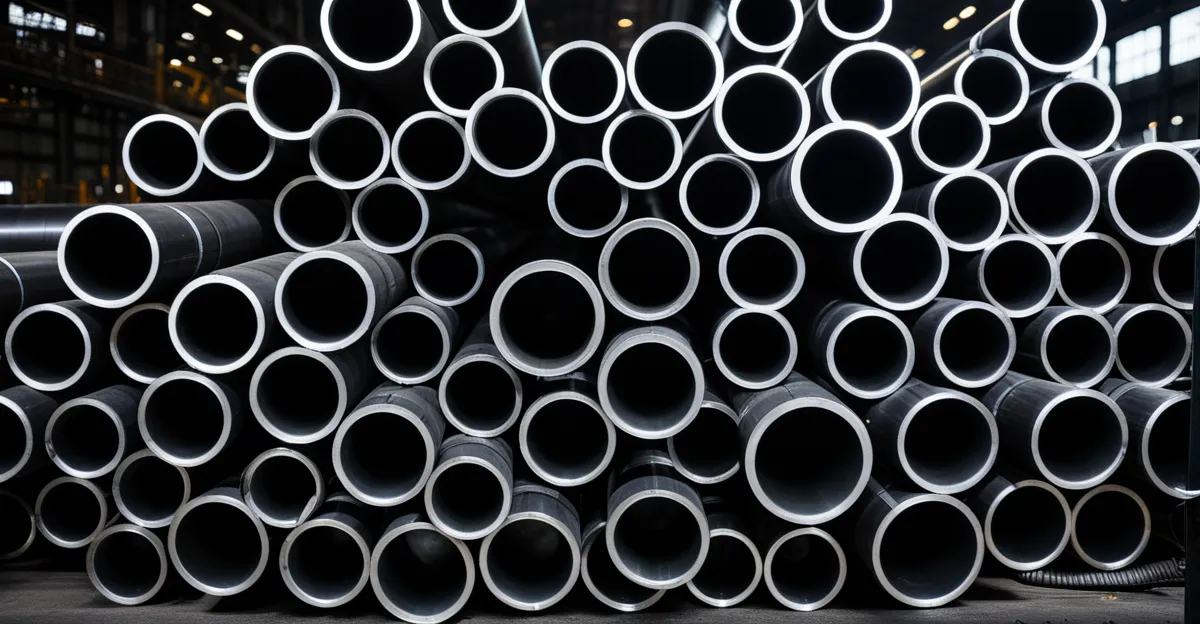Industrial tubes play a vital role across manufacturing, construction, and engineering by offering customized strength, durability, and precision. Their diverse materials and specifications meet specific sector demands, ensuring optimal performance. Understanding these tailored solutions helps businesses choose the right tubing to improve efficiency and reliability in their operations.
Essential Industrial Tube Types, Specifications, and Supplier Selection
You can view more details on this page: https://www.vallourec.com/our-solutions/industry/. Industrial tubes form the backbone of countless applications, with each major type—seamless steel, stainless steel, carbon steel, and advanced plastics—chosen for specific performance characteristics. Seamless steel tubes excel in high-pressure and precise environments such as hydraulic and fuel systems, while stainless steel tubing offers corrosion resistance, vital for food processing, pharmaceutical, and marine sectors. Carbon steel pipe provides robustness for construction and energy, and specialized plastics deliver chemical resistance with flexible installation for industries as varied as pneumatic control and beverage production.
This might interest you : Custom industrial tube solutions for various industries
Selecting suitable tubes relies not just on material, but also on critical specifications. Dimensions, wall thickness, pressure ratings, chemical compatibility, and adherence to standards such as ASTM, BS EN, or ISO certification directly affect safety and durability. Traceability and quality certification are also essential for regulated industries.
To choose reliable suppliers or manufacturers, prioritize catalog tools that ease product selection, proof of compliance through certificates, sourcing flexibility for custom needs, and robust traceability practices. This foundation ensures industrial tubing systems meet stringent operational requirements across diverse industry applications for tubes.
Also to discover : How Will the Future of UK Business be Affected by Emerging Technologies?
Core Materials, Manufacturing Methods, and Quality Assurance
Comparative Analysis: Steel, Stainless Steel, Carbon Steel, and Plastic Tubes
Steel, stainless steel, and carbon steel tubes remain the backbone of industrial applications due to exceptional strength, durability, and versatility. Plastic tubing, while lightweight and corrosion-resistant, is mostly suited for low-pressure systems, food processing, or chemical transport. In contrast, mild steel pipes offer cost efficiency but require protective coatings for longevity. Stainless steel excels in corrosive or hygienic conditions, vital for food, beverage, or pharmaceutical use. Carbon steel pipe serves well in high-pressure settings, like oil and gas, thanks to robust mechanical properties.
Manufacturing Methods: Hot Finished, Cold Drawn, Welded, and Seamless
Seamless steel tubes are formed without welding, ensuring uniformity and superior performance under pressure. Hot finished and cold drawn methods refine these properties, with cold drawn tubes boasting tighter tolerances and a polished finish. Welded tubes, meanwhile, balance cost and performance for applications where absolute integrity isn’t as critical. Selection depends on pressure demands, required tolerances, and end use.
Quality Management and Traceability
Manufacturers uphold stringent quality standards such as BS EN ISO 9001:2015 to guarantee material reliability. Full traceability of certified stock ensures consistent compliance, crucial for safety-critical industries. Thorough documentation, quality testing, and certification bolster confidence in tube performance across diverse sectors.
Industry-Specific Solutions and Customization Capabilities
Precision in industrial tubing begins with applications tailored to core sectors. Automotive, transport, and construction rely on seamless and welded steel tubes for chassis, exhaust, and framework, with strict adherence to durability and safety. Mechanical engineering demands tubing for hydraulic cylinders and machinery where pressure performance and tolerance are critical. In the oil & gas and renewable energy spheres, tubes endure intense conditions—structural, heat-exchange, and flow-control roles call for precise sizing and verified metallurgy, such as API or EN grades.
Adaptability is vital. Orders span from single cut pieces to full batched deliveries; custom cutting, sizing, and finishing ensure tube lengths, diameters, and coatings align exactly with project demands. Tube coating and surface processing—galvanizing, painting, or shot blasting—boost corrosion resistance, essential for outdoor or demanding environments.
Complete system integration is achieved through compatibility with valves, fittings, and connectors. This enables seamless inclusion in pipeline assemblies across industries, supporting diverse materials like carbon steel, stainless steel, and specialist alloys. These capabilities support flexible response to both standard supply or complex, bespoke industrial tubing needs, ensuring even highly specific operational and technical requirements can be fulfilled.
Logistics, Sustainability, and Supplier Services in Industrial Tubing
Inventory Management, Distribution Strategies, and Lead Times
Precision in the industrial tubing market means maintaining large inventories for varied applications, minimizing lead times, and enabling flexible order sizes. Steel tube supply relies on comprehensive stock – with thousands of tonnes available, including carbon seamless, hot finished, and hollow bar varieties. Advanced distribution networks—such as dedicated vehicle fleets and proximity to major motorways—drive national and international deliveries, allowing orders ranging from individual cut lengths to full truckloads. This ensures clients receive steel tube for sale or steel pipe for sale rapidly, which is fundamental for time-sensitive operations.
Surplus Stocks, Circular Economy, and Sustainability
Utilizing surplus and unused tube stock is central to greener steel initiatives. By sourcing and supplying over-rolling, second quality, and unused surplus materials, suppliers align with circular economy principles and help reduce project carbon footprints. This cost-effective approach contributes to environmental sustainability while offering clients access to competitively priced steel pipe distributors’ inventories, frequently with significantly reduced lead times compared to prime stock.
Supplier Services: Cutting, Logistics, Packaging, and Certification
Industrial tube & steel corporation services include on-site cutting, welding, shot blasting, painting, and customized packaging to support handling and installation needs. Many industrial tubing suppliers UK provide assistance with certification for traceability, meeting strict industry standards. Responsive client support, such as product finders or technical consultations, is standard—helping users identify the right steel tube sizes or pipe grades for specialized requirements and improving overall project outcomes.



